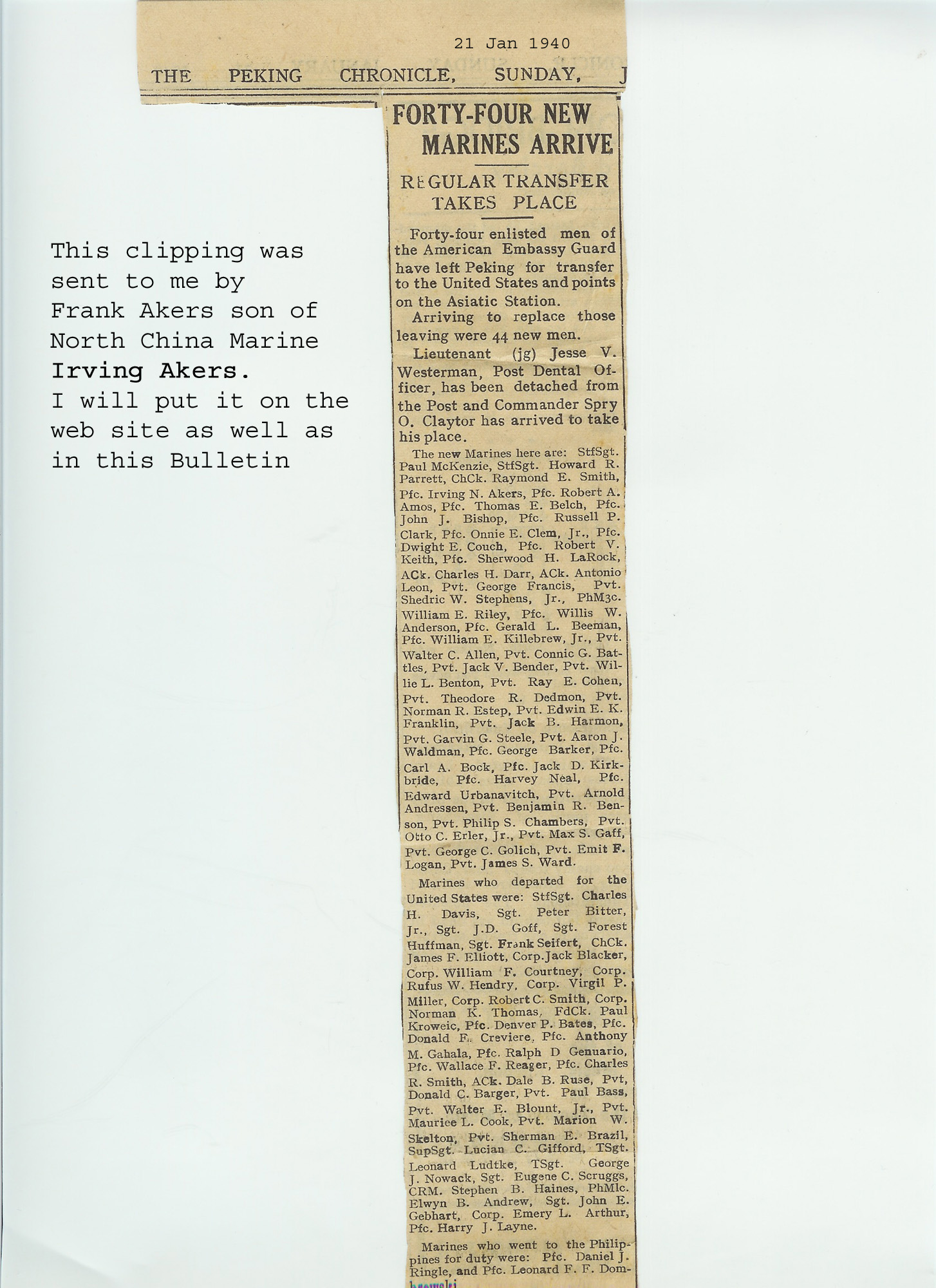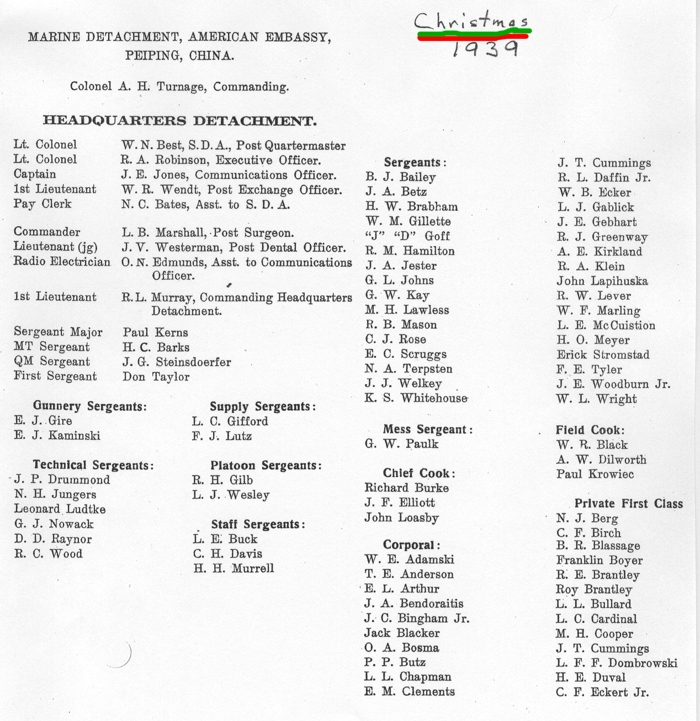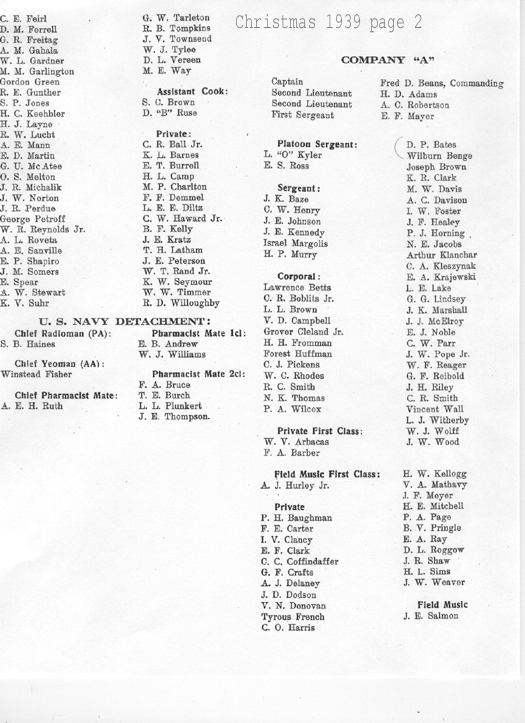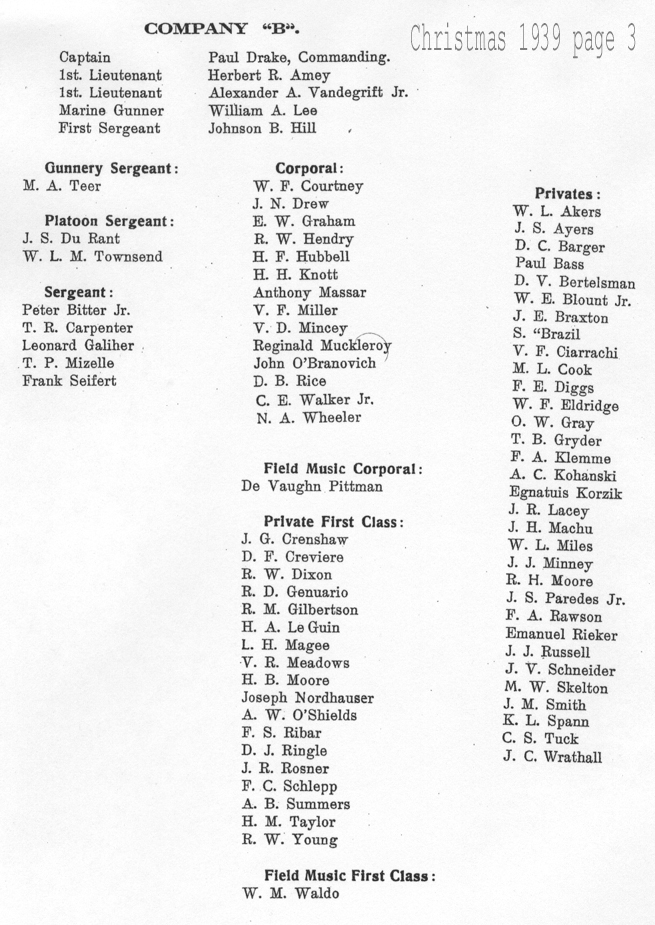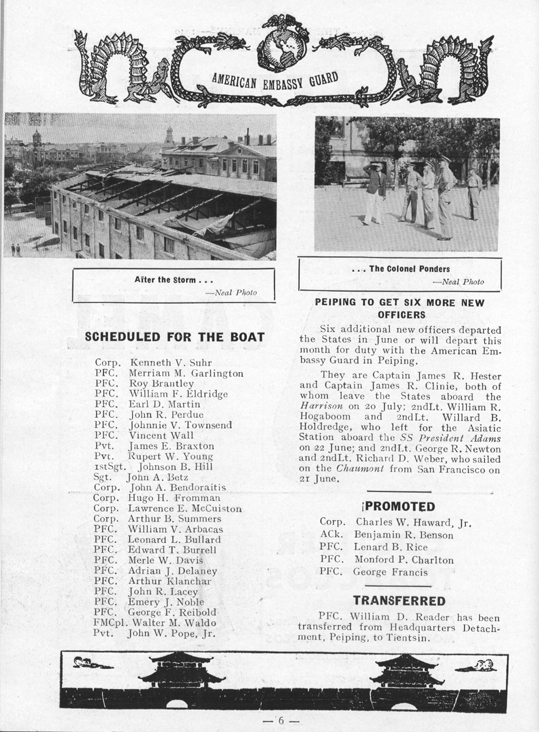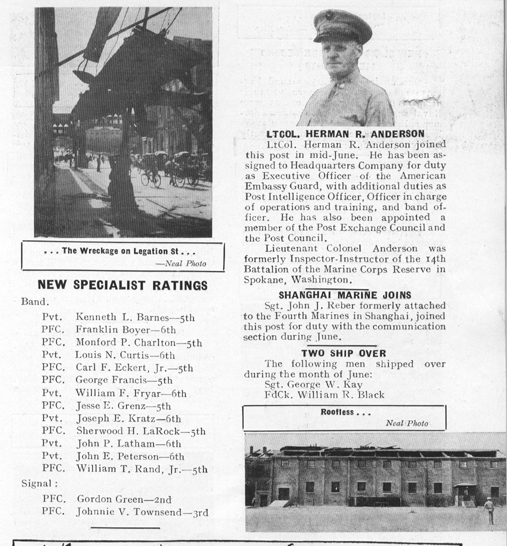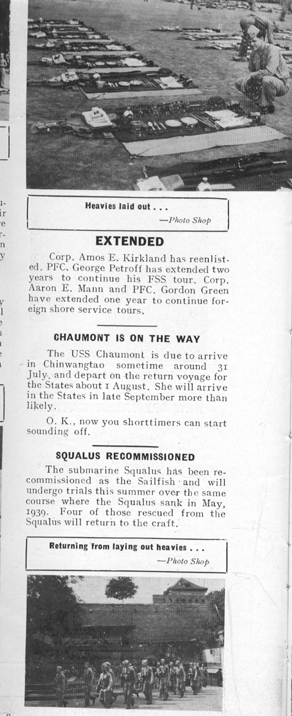The Peiping Marine began its publication in December 1938. Prior to that The Legation Guard News and The Embassy Guard News was published.
A big Thank You goes to Doris Schneider for letting me borrow her husband's copies of the Peiping Marine along with other scrapbooks. This section is also divided into parts to make it easier to load to your screen.

photo below from collection of Howard Chittenden

Marine compound at Peking. At right-Headquarters Company barracks. Officer's quarters top right. Majority of compound to left. Swimming pool tucked to left of large building top left (sick bay). Barracks for A and B Companies, barber shop, post exchange, bowling alley, library, mess hall, and NCO quarters in 4 story building just to left, outside of picture.

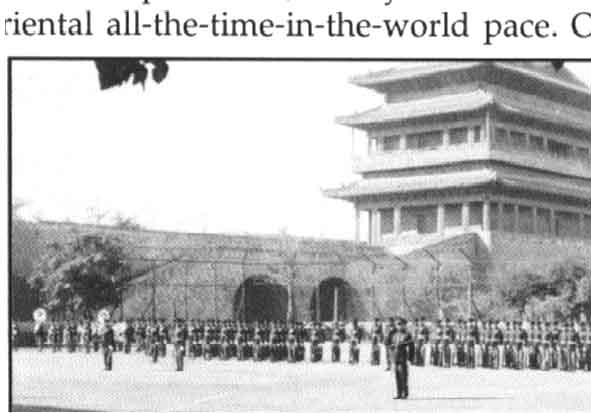
Chien Mien tower in back. This tower was occupied by Japanese troops the morning of 8 Dec 1941.

Ticket stubs from papers of Jake Schneider.
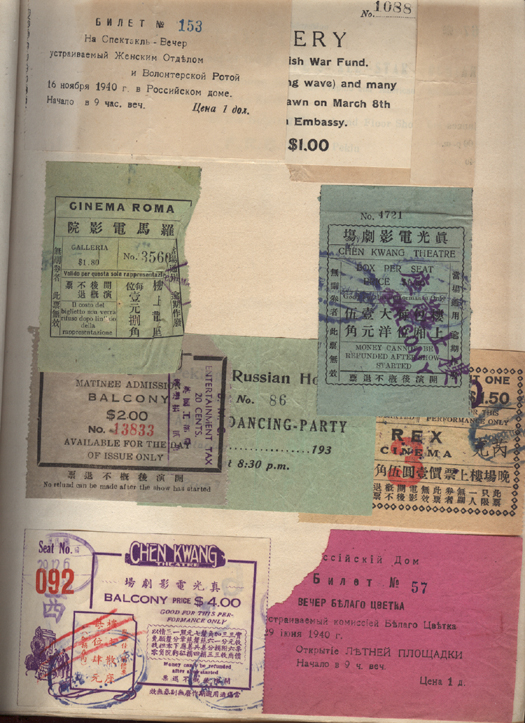
The following is from a letter received by the family of William Harold Thomas after his arrival in Peking in 1940, probably in the May draft pictured at the top of Peiping Marine, part two. "I have finally arrived at my station, which is Peiping China ... This is the American Embassy Guard, consisting of about 300 Marines.I expected to see a lot of hills and mountains in North China, but on the contrary, it is level as northern Illinois, and ten times as dusty. The ground will not even grow grass without fertilization! ...Not long after leaving Chinwangtao our train ran over an old man. The train stopped, and the conductor got off and dragged the man to one side, got back on the train and we were on our way again...About five minutes delay. ...The atmosphere even has a peculiar smell. Very poor, and very dirty, some people never take a bath, and never get wet except by accident.A haircut here is 4 cents gold. There's even a fellow that manicures our nails for 20 cents in Chinese money. This price applies either for hands or toes. The money exchange is $22.50 for $1 (American) and I make around $450 a month in Chinese money. We're wealthy to them.This place is plenty cheap, good barracks, and plenty to do, but there's always a drawback. The Japs have a part of this city forbidden to us, so the places an American can go are limited.I will be here 2 1/2 years before I can go to the U.S. There is a little bit of the China-Japan war going on about 25 miles from here, but it amounts to just small raids, and we never hear of it. They've been at war so long that it is just a matter-of-fact occurrence to them"On 26 May 1940 he wrote "Strange place, this China. Strange people, these Chinese...It looks plenty bad for war. I sure hope the U.S. stays out. Germany has gone just about to the end of her rope, in my opinion. I still can't see how Germany can move supplies fast enough to keep the army moving. The tide will change against Hitler this summer. Anyway, I hope it does." Further comments by Harold Thomas concerning the Kawasaki POW camp can be seen on the Kawasaki page.
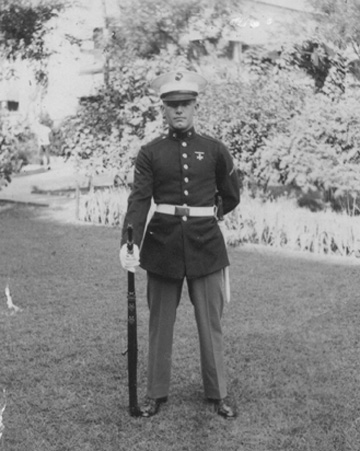
William Harold Thomas 1940 or 41. Photo and letters courtesy of his sister Liz Faries.
Included on these pages are the complete personnel roster for Peking in Christmas of 1939, Thanksgiving and Christmas of 1940. Researchers can use them to determine who was assigned to Peking and when. The rosters also show ranks of all personnel.
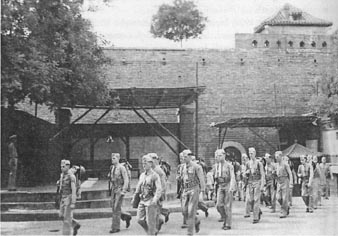
Peking Marines returning from a conditioning hike in Peking in 1941. They are entering the compound through the back gate. In the background is the Tartar Wall. To the left is the Quarter Deck, where they checked out before going on liberty. Photo and description courtesy of Chester M. Biggs, Jr.
Picking up liberty cards and checking out.
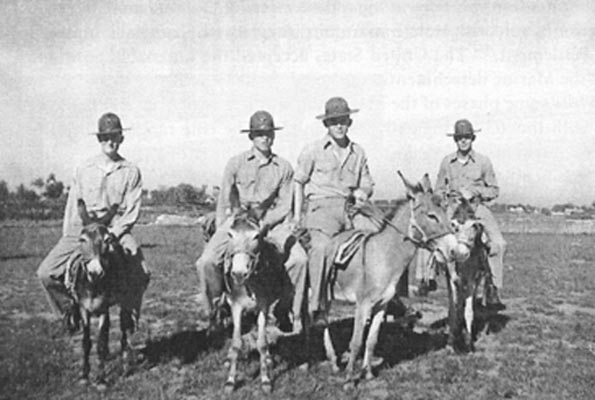
left to right: Chester M. Biggs, Jr., John Beavers, John D. Pitner, Arnold Andressen 1941 at the rifle range. Marines could rent donkeys to explore the countryside after their work was done on the range for the day.
Photo courtesy of Chester M. Biggs, Jr.
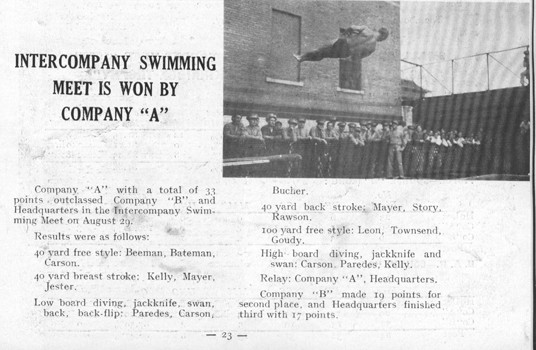
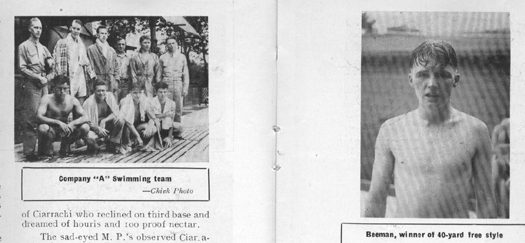
Kneeling L to R Lindsey, Bucher, Beeman, Townsend
Standing L to R Hogaboom, Bateman, Storey, Mayer, Woods, Cash
